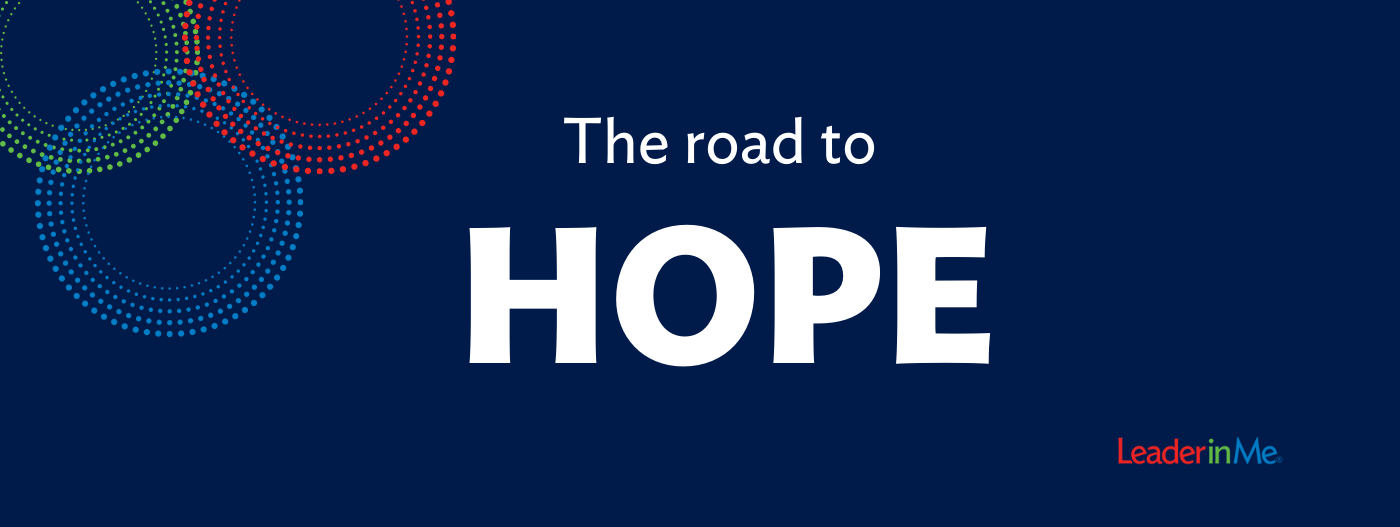The Road to Hope Recovery
Author: Dr. Eve Miller
June 9, 2021

Is There a Path to Hope Recovery?
Like so many of us dealing with the impacts of the ongoing COVID-19 pandemic, I’ve found myself feeling hopeless more often. I’ve noticed these feelings are more likely to show up at times when life feels out of my control—especially when I’m confronted with all that’s changed. I find myself grieving for the loss of my previous “normal” and feeling hopeless about the prospect of things getting better. My natural tendency is to try to push away these uncomfortable feelings by busying myself to a point that I have no time to experience them. While this is an understandable and sometimes necessary response, it is not a healthy long-term solution.
After months of trying to control hopelessness, I realized it was actually controlling me through my fear of feeling emotions I did not want to acknowledge. When our body senses fear, it has three hard-wired responses: fight, flight, or freeze. My flight response had me overcommitted and chasing after evidence that I was in charge. But, when we take action that disconnects us from the physiological “inner-knowing” of our bodies, we lose our deepest reserve of resilience. In a very real sense, I could run…but I could not hide.
It was only when I was in a more stable place with my personal experience of the pandemic that I had the emotional bandwidth to feel the disconnection from myself and acknowledge the feelings of hopelessness. I made the two choices that hope researchers Casey Gwinn and Chan Hellman said are required to start a journey back to hope:
- I chose to believe I could hope again.
- I committed to do the work to regain that hope.
A key advantage I had in making these choices was the opportunity I’ve had to study hope for years in my role as the Director of Research for FranklinCovey Education. I know the beliefs that drive hope and the learnable skills that create a process “that carries us to a better future.” Even with this knowledge, I had not applied it in an intentional way until I made the choice to believe I could hope again.
While I am still on my journey to reclaiming hope during these difficult times, there is much I have learned through adapting research into my life that I can also share with those who are ready and able to do the work of hope recovery. Over the next few blogs, I will be offering up bite-size research insights and applications around the science of hope. And while these articles will be written with educators and their students in mind, I will do my best to keep the applications universal enough that they can be used in a variety of contexts.
For now, I’ll leave you with a short reflection that comes from the founder of hope research, Dr. Charles Synder. I encourage you to not just read it, but use it as a journal prompt or a reflective exercise during a moment of self-care.
“If a miracle happened, and you could have your life be exactly the way you want it, what would it be like? Your journey to higher hope begins with an honest appraisal of who you are, how you think about your life, what you want for yourself, and how you can get what you want.”
1 Gwinn, C., & Hellman, C. (2018). Hope rising: How the science of hope can change your life. Morgan James Publishing.
2 Lopez, Shane J.. Making Hope Happen: Create the Future You Want for Yourself and Others (p. 14). Atria Books.
3 As cited by Gwinn, Casey; Hellman, Chan. Hope Rising: How the Science of Hope Can Change Your Life (p. 28). Morgan James Publishing.
Share Article on
Tags: burnout, COVID, education, empathy, family engagement, goal setting, Leader, leadership strategies, parents, principal, sel, wellness-leadership
